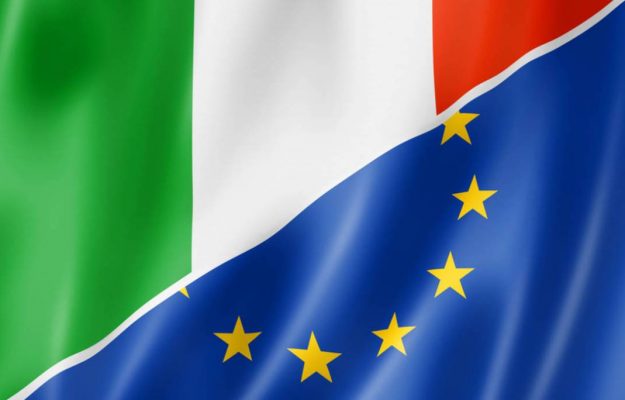From the proposal, postponed but not passed, to put alarmist labels on wine bottles as on cigarette packs to the issue of traffic light labels for food, there are many battles that Italy, and not only, is facing in Europe. Themes addressed today in several round tables also by Italian agricultural organizations, with Coldiretti focusing on the aspect related to wine, and Confagricoltura on the battle against the “Nutriscore” model, and in favor of the “Nutrinform” one.
”Nearly one Italian out of four (23%) would stop drinking wine or would consume less of it if they found alarmist writings on the label like those on cigarette packets", says Coldiretti, according to a survey conducted on the website www.coldiretti.it disclosed on the occasion of the meeting organized on the new EU Health Plan dividing Europe at the table in Brussels by Coldiretti, Filiera Italia, Eat Europe and Farm Europe with the collaboration of PPE, S&D and Renew Europe Members of Parliament. “It is completely improper to assimilate the excessive consumption of spirits typical of the Nordic countries to the moderate and conscious consumption of quality products with lower alcohol content such as beer and wine, which in Italy has become the emblem of a “slow” lifestyle, attentive to the psycho-physical balance that helps to feel good about oneself, to be opposed to the unregulated assumption of alcohol”, says the president of Coldiretti Ettore Prandini, stressing that the new policies risk to unfairly hit key components of the made in Italy food industry, which is the only sector that has grown abroad despite the pandemic reaching the record value of 46.1 billion in 2020. A danger linked to the fact that - underlines Coldiretti - the EU Commission could introduce health alarms in the labels of alcoholic beverages as for cigarettes as part of the prevention activities of the new “Action Plan to improve the health of European citizens” and eliminate wine and beer from the promotion programs of agri-food products. A choice that - specifies Coldiretti - would also affect red and processed meats, which are associated with cancer risks, in order to encourage the transition to plant-based diets.
The approved text provides that the Commission “will propose a mandatory indication of the list of ingredients and nutritional claims on alcoholic beverages by the end of 2022 and health warnings by the end of 2023” also reviewing the "promotion policy on alcoholic beverages”. In addition - continues Coldiretti - the Commission wants to change the policy of promotion of agricultural products, “with the transition to diets more based on plant products, with less red and processed meat”. But for some time, on the bench of defendants, from Italy but not only, there is also the “Nutriscore”, the so-called battery label, which according to its opponents brands as more or less healthy a food based on the content of salt, fat and so on, without taking into account the quality of consumption.
“The one against the Nutriscore is not only a battle on labeling systems and food certification models, but a battle for the future of agriculture”, reiterated strongly the president of Confagricoltura Massimiliano Giansanti in the framework of “Nutrinform Battery: the Italian proposal for Europe”, organized by Europeisti-MAIE-Centro Democratico. “We must strongly defend our food model - said Giansanti - based on agriculture, territories, biodiversity, history and food and wine traditions, against any attempt of homologation and standardization of food, based, instead, on the industrial model. Labeling systems such as Nutriscore go in this direction. Giving scoresheets to foods, without providing the necessary information on the quantities recommended in a balanced diet, will necessarily end up benefiting large industrial groups, and even synthetic foods, to the detriment of natural products, typical of our country, such as oil, cheese, salami, honey”. The Nutrinform Battery system proposed by Italy, developed by qualified national research institutes (Crea and Istituto Superiore di Sanità) with the collaboration of the entire agri-food chain and consumers, is based on the “weight” of each individual nutrient compared to the daily requirement and allows, therefore, to inform consumers and make informed and unconditioned choices: not a synthetic judgment of the individual food based on an algebraic sum of negative and positive nutrients, but a real method of nutrition education. The European Commission, says Confagricoltura, has asked to arrive at a single system of nutritional labeling Front of Package-Fop by the end of 2022. France, Germany, Holland, Belgium and Luxembourg are in favor of Nutriscore. While our Nutrinform system has found the support of seven EU countries. “2022 is not so far away - concluded Giansanti - and we must try to involve as many stakeholders as possible at European level (trade associations, environmentalists, consumers, research institutes, representatives of politics and institutions) to arrive at a transparent, ethical and correct labeling system. This is a cultural battle, but also an economic one. The future of food and agriculture is at stake”.
Copyright © 2000/2026
Contatti: info@winenews.it
Seguici anche su Twitter: @WineNewsIt
Seguici anche su Facebook: @winenewsit
Questo articolo è tratto dall'archivio di WineNews - Tutti i diritti riservati - Copyright © 2000/2026







































































































































































































